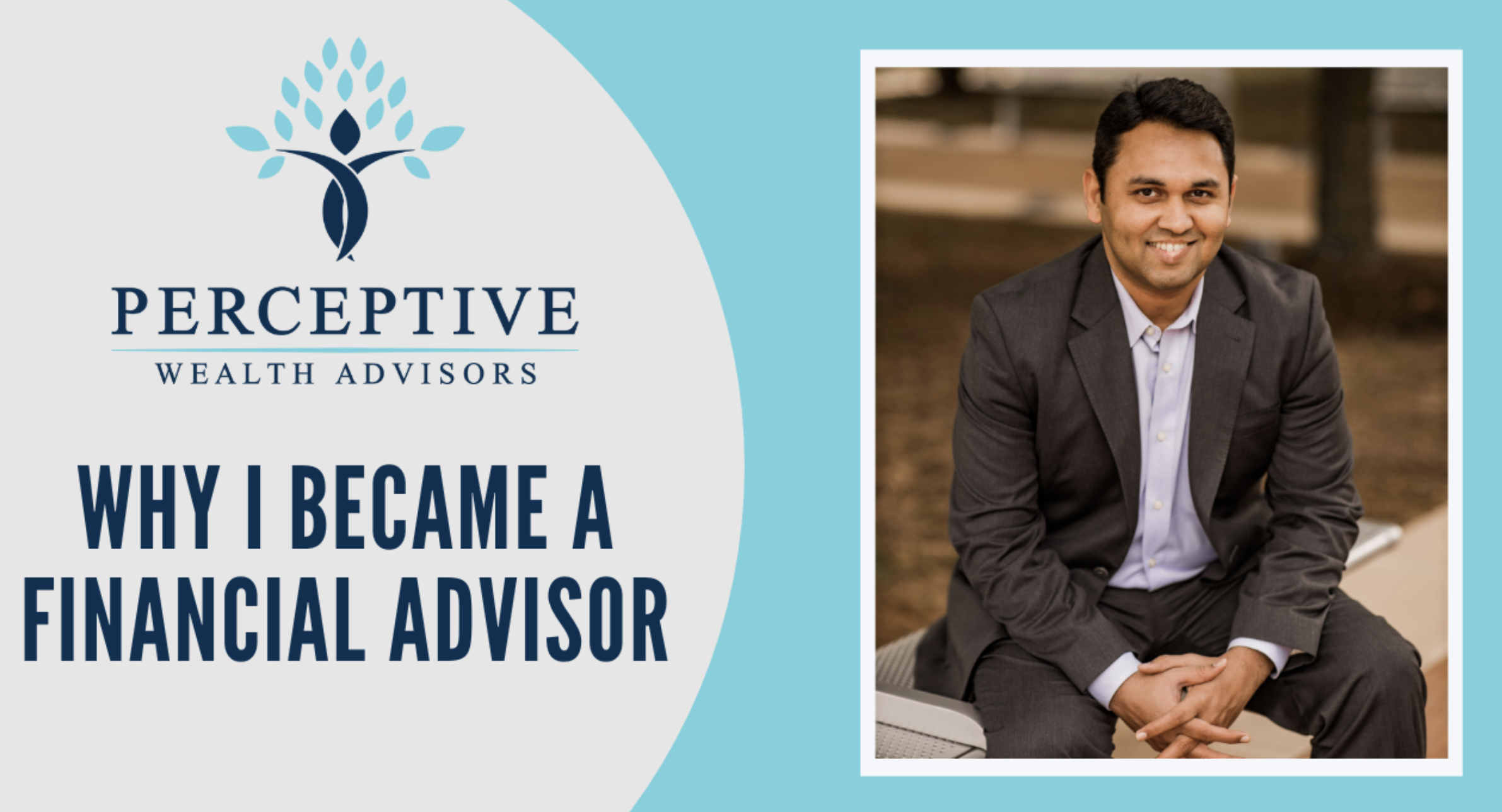By Amol Desai, CFP®, CFA
My journey to becoming a financial advisor is not typical. It starts from growing up in India during the era of economic reforms and liberalization, getting quality education and professional experience as an engineer, moving to a new country, and adapting to it, experiencing economic cycles (including the 2008 financial crisis along the way), to completely changing my career path by getting foundational education in finance and learning continuously. All these transitions have helped me reach where I am today.
Background
I grew up in India in the 1980s and 1990s in a middle-class family focused on quality education. While earning my bachelor’s degree in production engineering at the University of Mumbai in the late ’90s, I was witnessing the fast and exciting developments occurring in India’s economy as a result of the economic reforms and liberalization undertaken during that time. It sowed the seeds of curiosity surrounding the functioning of finance, economics, and how it can impact a society as a whole. Although still a student of engineering, I was very much interested in furthering my knowledge, so I decided to move to the U.S. for my graduate studies in mechanical engineering. My curiosity around finance stayed dormant in the back of my mind for a while.
During my early years in the U.S., after my graduation, I worked as a design or manufacturing engineer in different industries, like material handling equipment or oil and gas, etc. Along the way, the great financial crisis of 2008-2009 struck the world, and I once again found myself drawn to learning more about finance and economics—so much so that I decided to completely change my career path by pursuing a full-time MBA with a finance concentration.
A New Beginning
During my business-school days, I got an opportunity to grow beyond my technical skill set through learning about diverse topics such as micro and macroeconomics, accounting, corporate finance, investments, etc. I was also part of a student-run investment fund that gave me a real-life flavor of portfolio construction and management.
Post graduation, I began working as a business and commercial analyst for Chevron and eventually as a consultant for K Carpenter Associates, primarily working with corporate clients in the oil and gas sector. The financial models I built during such work were designed to optimize project investment decisions for the corporate clients. Although I was enjoying my work in a corporate setting, I was also exploring what more I could learn and how I could leverage my background and experience as a first-generation immigrant to the U.S. to help others like me.
Evolution of Thoughts Around Personal Finance
Over the years, I have observed how people (including myself) think about and deal with their personal financial situations. Our attitude toward money and how we view wealth in general often differs and is shaped by our own experiences while growing up, as well as our individual values and goals. It can range from impulsive spending habits (buying every new trending thing or luxury goods) even without enough resources for such a lifestyle, to being a very calculated spender despite having more than enough. Some are constantly searching for hot new investment trends for the highest possible returns while others are perfectly happy to invest their savings in a few passive investments like index funds. In any case, everyone wants to experience financial independence or stability that can free us from any worry when spending on our needs, wants, and desires.
Often, many think of some amount they want to accumulate before retiring so they can feel financially secure and independent. Financial institutions and advisory firms use this fact and convey to potential clients that they can help them identify that number—how much they need to retire and how to get there. Remember the commercial (“What’s Your Number?”) by ING a few years ago?
But if we really think about it, is it really a “number” that drives our feeling of financial independence or stability? Of course, we need to be aware of our needs and wants, and we should be able to estimate the approximate life savings we need to retire comfortably. But I believe it is just one aspect of financial planning for the long term. One static number cannot and should not be the only factor driving our feeling of financial security, as it will evolve as life progresses—and our needs, likes, and dislikes change with it.
I believe the feeling of financial stability is instead driven by knowing that our financial life is well organized. It is driven by the clarity of thought and confidence we have while making any financial decision. Knowing clearly why and what we are spending on, why and what we are saving for gives us a great sense of control over our financial lives. Identifying our values and ensuring we align and plan our finances accordingly will ultimately provide the feeling of financial stability. Accumulating a net-worth level that is specific to and different for each of us should just be a natural outcome of this ongoing planning process instead of some number to be obsessed over.
Branching Out
With such thoughts and with my inclination to keep learning I went on to earn the Chartered Financial Analyst® and CERTIFIED FINANCIAL PLANNER™ designations. With this valuable educational and professional experience under my belt, in 2020, I decided to start my own fee-only Registered Investment Advisory firm. I enjoy collaborating with mid-career professionals and/or individuals or families who, like myself, are the first generation to live in the United States, because I understand and can relate to their experiences and needs. While I am based out of Houston and its suburbs, I also work virtually and can help clients nationwide.
I work with my clients to develop financial plans that align with their values, whether that’s funding their kids’ education, pursuing a passion, or supporting a favorite charity. I pride myself on diligently listening to my clients’ needs and providing thoughtful, objective, and timely service. My ultimate goal is to facilitate their financial journey and provide organization, clarity, and confidence in their decisions, so they are well prepared to build long-term wealth.
Why I Love What I Do
Being a financial advisor allows me to align my own life to my values of Service, Diligence, Humility, Continuous Learning, and Living with Purpose. In addition, it gives me an opportunity to work with my clients who are often uncertain or anxious about various financial decisions they face in their busy lives. When they experience clarity and confidence about their financial future as a result of the collaborative planning process I facilitate, I feel valued. This feeling drives my passion to help my clients, as it’s very fulfilling to guide and witness their journey to becoming financially assured for life.
Moving Forward
When moving to a new country, there are unique challenges and obstacles people face as they learn to navigate a complex financial system. Having a helpful guide and advocate who understands your journey can make all the difference. At Perceptive Wealth Advisors, we can help you get to where you want to go because we understand where you have been.
If any part of my story resonates with you, I encourage you to reach out today by emailing amol@perceptivewealth.com, calling (713) 575-2712, or scheduling a complimentary discovery call. I look forward to hearing from you and seeing how I can help!
About Amol
Amol Desai is the founder and lead advisor at Perceptive Wealth Advisors, an independent, fiduciary, and fee-only Registered Investment Advisory firm that guides clients on their journey to become financially assured and well prepared for life through proactive financial planning. We primarily serve mid-career professionals and first-generation immigrants to organize their finances, bring confidence to their financial decisions, and build their long-term wealth. Amol prides himself on diligently listening to his clients’ needs and providing thoughtful, objective, and timely service.
Amol obtained a Bachelor of Engineering, a Master of Science in Mechanical Engineering, and an MBA in finance, and holds the Chartered Financial Analyst® and CERTIFIED FINANCIAL PLANNER™ designations. When he’s not working, Amol enjoys traveling, visiting national parks, hiking, and learning about music (often following Indian Classical/semi-classical genres). To learn more about Amol, connect with him on LinkedIn.



